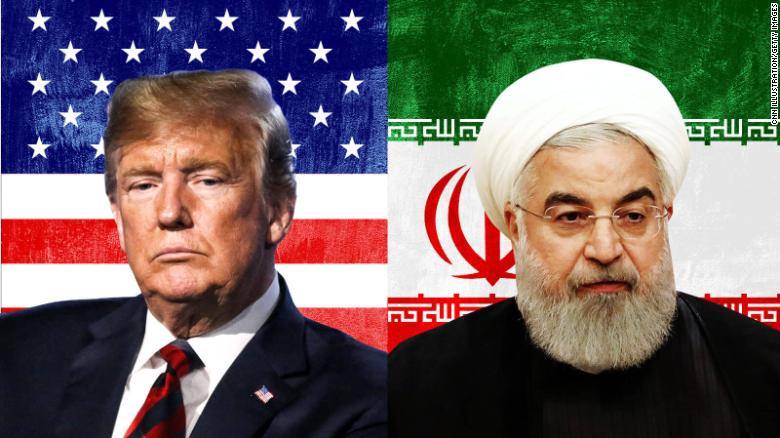
The crisis between the United States and Iran continues to simmer. Over the past 48 hours, even as the world has processed the assassination of General Qassem Soleimani by US forces in Iraq, news of various kinds of retaliation from Iran has been coming in. This first took the form of warnings for US forces stationed in Iraq from militias associated with Iran. Temperatures have risen even further after Iran's direct retaliatory rocket strikes against NATO assets in Iraq.
There are four important aspects to be noted here from a Pakistani perspective.
First, that Iran's action so far has not resulted in any US casualties. This suggests a deliberate policy of contained retaliation. Some form of armed response is obviously a political necessity in Iran, but the leadership of that country still seems unwilling to enter a destructive spiral of escalation. The US leadership can, therefore, choose to limit further conflagration too, if hawkish logic does not prevail in Washington. Of course, the fact that further escalation can easily be avoided does not mean that the Trump administration will necessarily choose such a path. President Trump's approach to Iran has been anything but restrained.
Second, that Iran's “vengeance” for the death of its senior military commander may well end up being a long-drawn-out affair – one where US and allied interests are gradually targeted over a period of months, even years.
Third, that Iran will henceforth take a far more hostile view of any US military presence in Iraq, Syria and elsewhere in the region. This could even develop into a full-scale effort to eject US forces from Iraq in the near future.
Fourth, that Pakistan can ill afford the risk from being too embroiled in the conflict by picking one side or the other. In the event of a wider conflagration, both the US and Iran have shown that they care little for the sovereignty of other countries in the course of their clashes. Great though the temptation might be to let the current tilt in Pakistani policy prevail, it could easily become an excessively costly liability in any unhappy situation where the conflict heats up.
There are four important aspects to be noted here from a Pakistani perspective.
First, that Iran's action so far has not resulted in any US casualties. This suggests a deliberate policy of contained retaliation. Some form of armed response is obviously a political necessity in Iran, but the leadership of that country still seems unwilling to enter a destructive spiral of escalation. The US leadership can, therefore, choose to limit further conflagration too, if hawkish logic does not prevail in Washington. Of course, the fact that further escalation can easily be avoided does not mean that the Trump administration will necessarily choose such a path. President Trump's approach to Iran has been anything but restrained.
Second, that Iran's “vengeance” for the death of its senior military commander may well end up being a long-drawn-out affair – one where US and allied interests are gradually targeted over a period of months, even years.
Third, that Iran will henceforth take a far more hostile view of any US military presence in Iraq, Syria and elsewhere in the region. This could even develop into a full-scale effort to eject US forces from Iraq in the near future.
Fourth, that Pakistan can ill afford the risk from being too embroiled in the conflict by picking one side or the other. In the event of a wider conflagration, both the US and Iran have shown that they care little for the sovereignty of other countries in the course of their clashes. Great though the temptation might be to let the current tilt in Pakistani policy prevail, it could easily become an excessively costly liability in any unhappy situation where the conflict heats up.
